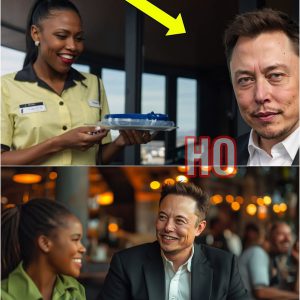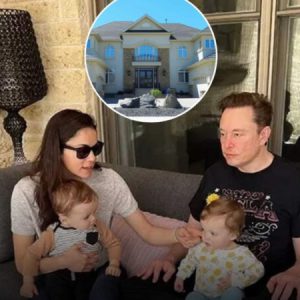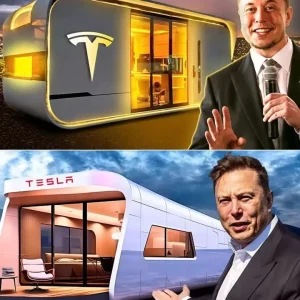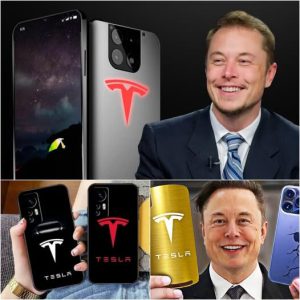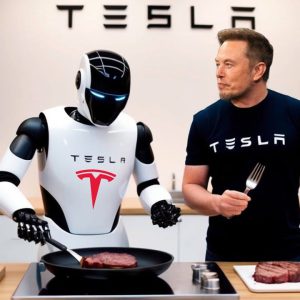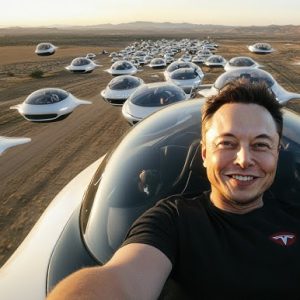What happens when Elon Musk, one of the world’s most famous billionaires, stops to talk to a homeless veteran on the streets of San Francisco? Bernie, a 58-year-old Marine struggling with PTSD and homelessness, shares his story with Musk, not expecting much. But what follows is nothing short of extraordinary. This emotional encounter leads to a series of events that change Bernie’s life forever, showing the true power of compassion and second chances. Watch to see how one conversation transformed everything.

The streets of San Francisco were alive with activity as Elon Musk, dressed in a simple black blazer and jeans, strolled towards a parking garage after a tech conference. Though Musk was an iconic figure known for his innovations and ventures, tonight he blended into the crowd, his face partially obscured by a baseball cap.
As he neared the corner of the garage, a man caught his attention—a homeless veteran sitting on the curb. The man, Bernie, wore a frayed green jacket, worn boots, and carried a small cardboard sign that read: “Homeless Veteran. Anything Helps.” His demeanor was calm, his gaze steady but not pleading.
Elon hesitated before approaching, intrigued by the man’s quiet composure. “Hey,” he said, his voice cutting through the soft hum of the streetlights. “Mind if I sit?”
Bernie looked up, momentarily surprised. After a pause, he shrugged. “It’s a free sidewalk.”
Sitting down beside him, Elon introduced himself simply as “Elon.” There was no flicker of recognition in Bernie’s expression, and for once, Elon wasn’t treated like a headline.
“What’s your name?” Elon asked.
“Bernie,” the man replied, his voice gravelly.
“What brings you here?”
Bernie sighed, leaning back against the cold wall. “Served in the Marines. Twenty years—Afghanistan, Iraq. Got out with a pension and scars you can’t see. Pension didn’t last, neither did my wife. Lost the house, the car, and here I am.”
Elon listened intently, offering no interruptions. Bernie’s words painted a stark picture of loss and resilience: PTSD haunted his nights, and the struggles of civilian life eroded his family and financial stability.
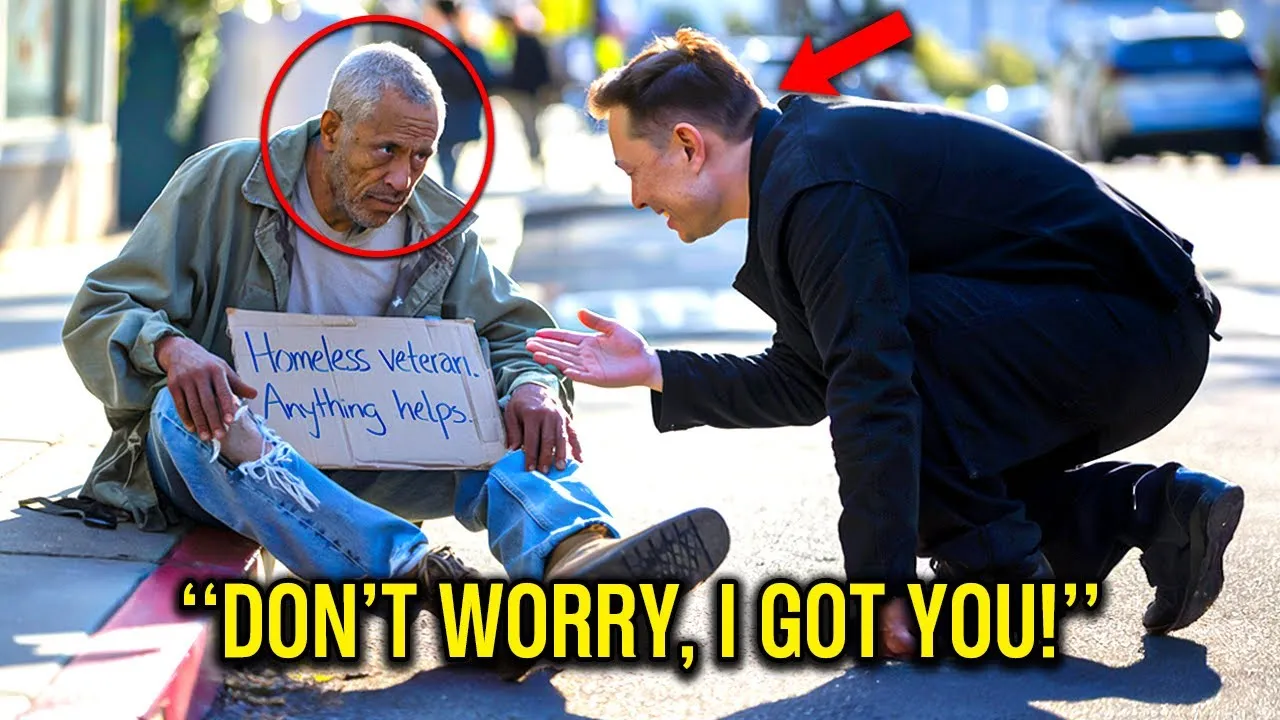
When Elon asked Bernie what he needed to turn his life around, the answer came after a long pause. “I used to fix things—cars, motorcycles, farm equipment. If I had a little shop and tools, maybe I could start over. But out here, that’s a pipe dream.”
Elon’s expression grew thoughtful. “What if it’s not?”
Bernie blinked, unsure if Musk was serious. “What do you mean?”
“Let’s start with housing,” Elon said, pulling out his phone. After a quick call, he arranged for Bernie to stay at Horizon Haven, a veteran support center. “They’ll have a bed for you tonight,” he said.
Bernie hesitated. Accepting help wasn’t easy after years of being invisible to the world. “Why are you doing this?”
Elon’s response was simple: “Because I can. And because someone should.”
Within weeks, Bernie moved into Horizon Haven, where he found not just shelter but a network of support. Elon didn’t stop there. He leased a modest garage in Oakland, stocking it with tools and equipment Bernie would need to launch his repair business.
When Bernie saw the garage for the first time, he was overwhelmed. “This… this is mine?”
“All yours,” Elon said. “Now it’s up to you to make it work.”
Bernie named his shop “Bernie’s Repairs: Bikes, Cars, and More.” Word of mouth spread quickly, and within weeks, his first major client, a local construction company, brought in their fleet of trucks for servicing.
“You’ve got skills,” the company’s manager, Mike, said after Bernie repaired their first vehicle. “We’re sticking with you.”
The garage became more than a workplace; it was a sanctuary for Bernie. Framed photos of his Marine Corps days adorned the walls alongside thank-you notes from customers who admired his honesty and skill. His business wasn’t just thriving—it was becoming a cornerstone of the community.
But Bernie wanted to give back. He began offering free repairs for veterans in need and started a training program for local youth interested in mechanical work. His shop was alive with activity: the hum of engines, the laughter of kids learning to use wrenches, and the camaraderie of people coming together.
One evening, Bernie returned to Horizon Haven, not as a resident but as a benefactor. He handed the staff a check—his way of ensuring other veterans had the same chance he did.
“This place saved me,” he said, his voice thick with emotion. “Now it’s my turn to help.”
Meanwhile, Bernie’s story gained national attention. A local news station ran a feature about his journey, highlighting Elon Musk’s unexpected act of kindness. The story went viral, inspiring countless discussions about the power of second chances.
When asked about his involvement, Elon downplayed it: “Bernie already had the grit and determination. I just gave him the platform to use them.”
Months later, Bernie stood in his bustling garage, his hands greasy but his heart full. A young boy approached him, wide-eyed and curious. “Were you really homeless?” the boy asked.
Bernie knelt down, looking the boy in the eye. “Yeah, I was. But you know what? It’s not about where you start. It’s about what you do next.”
From a curb on a San Francisco street to the heart of a thriving community, Bernie’s journey was a testament to resilience, hope, and the transformative power of being seen. One act of kindness didn’t just change Bernie’s life—it created ripples of positivity that touched an entire community.
As for Elon, he remained a quiet supporter, occasionally stopping by the shop to check in. “How’s it going?” he’d ask, his presence a reminder that sometimes, all it takes to change a life is the willingness to listen and act.
For Bernie, life wasn’t just about survival anymore. It was about living—with purpose, pride, and a commitment to lifting others as he had been lifted.
